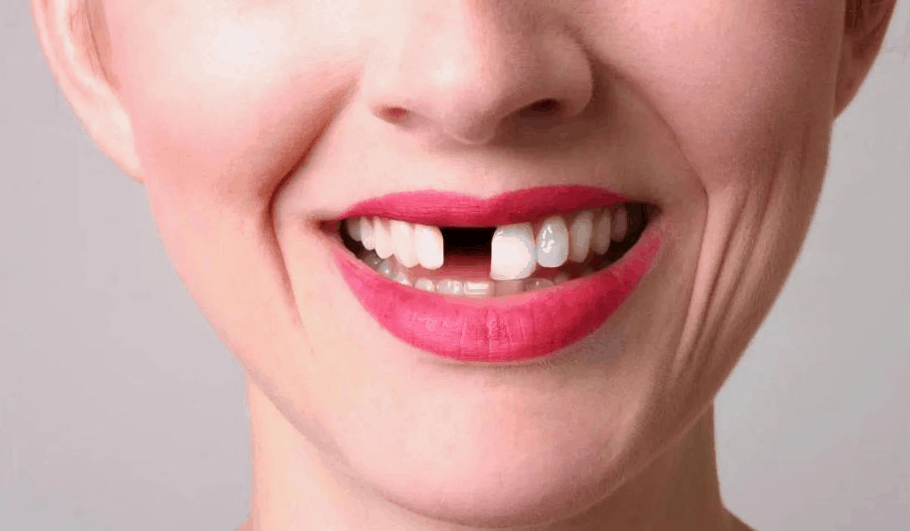A lot of people associate a lost tooth only to a lack of confidence and cosmetic inconsistency. Though these are some major concerns, a lost tooth affects oral health to a great extent.
Lack of proper oral health affects total health and that is why one shouldn’t take a lost tooth lightly. The lost teeth lead to a lot of oral problems such as wear and tear, loss of alignment, gum decay, bone loss, and more.
To avoid such problems you can visit the best dental clinic and choose a strategic treatment plan to replace the lost tooth.
If you still don’t care about the lost tooth, here are reasons why you should replace them.
Restore your confidence
If you are self-conscious about the gap in your smile due to lost teeth, restoring it can work wonders in maintaining your self-esteem.
Missing teeth can also affect your speech a lot, as it results in slurring of words or whistling when you speak.
It can also boost facial aging, as your cheeks can begin to sink in without teeth for structural support.
Aging, problems while speaking and an incomplete smile shun confidence. You can’t express your ideas and thoughts.
To avoid such adversities, consider a dental implant to restore a lost tooth.
Wear and tear of other teeth
If one side of your mouth doesn’t have one or more teeth, you may find yourself using the opposite side of your mouth to chew food.
Most times, this results in more wear and tear of the teeth.
The wear and tear make teeth more susceptible to stress fractures of the jaw bone and tooth enamel erosion.
Shift and misalignment of teeth
When you have every tooth in your mouth in a row, there won’t be any space for the teeth to fall out of their place.
Also, every tooth supports the other and keeps them in place.
A gap in your mouth due to a missing tooth increases the possibility of teeth shifting. The bones near the missing site loosen and lead to the misalignment of teeth.
If your teeth shift, a lot of problems occur including change in the bite strength, tooth decay and gum diseases.
When teeth drift out of place, it creates a gap in your gum and allows bacteria to pass through.
The bacteria may cause inflammation of gums, tooth decay, or formations of nodules.
Increased risk of gum decay
Lost teeth put your oral health at great risk, as the surrounding teeth drifts out to accommodate the lost space.
This leads to the accumulation of dirt and food between the gaps and makes it harder for you to properly clean your teeth.
You cannot reach all spaces while cleaning. Over time, the accumulation of debris leads to a build-up of plaque which can transform into tooth decay and periodontal disease.
Bone loss
When you ponder the importance of replacing the lost teeth, the possibility of bone reabsorption becomes a major concern.
Without the support from the roots of a tooth, the jaw bone at the missing site may reduce rapidly each year resulting in a weakened jaw.
The loss and weakening of the jawbone are also known as jawbone reabsorption.
Jawbone reabsorption can change the whole appearance of your face with no bone to support it.
To go through this it is better to get dental implants if it is a few teeth or a partial denture.
TMJ disorder
The muscles present on the side of your buccal cavity that help you chew and rotate the jaw are known as temporomandibular joints or TMJ.
When you have a few missing teeth, the integrity of the temporomandibular joints is affected can cause a lot of physical pain.
You can prevent TMJ disorder by restoring the lost teeth. Make sure you opt for dental replacement before it becomes too late.
Replacement options
Due to advancements in dental technology, there is a lot of replacement procedure. Your dentist will help you choose the right one.
Dental implants: If you have lost a couple of teeth and don’t want dentures, dental implants might be the one for you.
The dental implants are designed to acts as the root at the missing site. The dental implants are made of titanium and are fastened to your jaw bone like a screw.
The screw offers a stable root for your jaw to prevent jaw absorption and acts as the base for artificial teeth.
Partial dentures: the partial dental fixtures are not screwed to the jawbone instead they are attached to the adjacent tooth near the missing site. It is great if you don’t have enough jawbone.
Bottom line
Have a complete and stunning smile by replacing the gap. The dentist will choose the right type of dental implant based on the number of the missing tooth and other factors.


